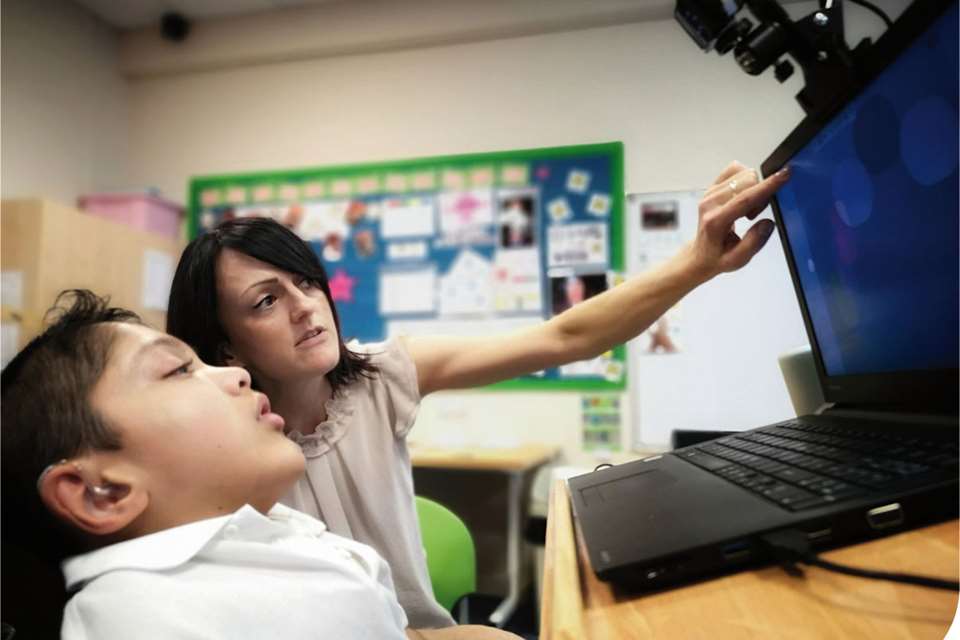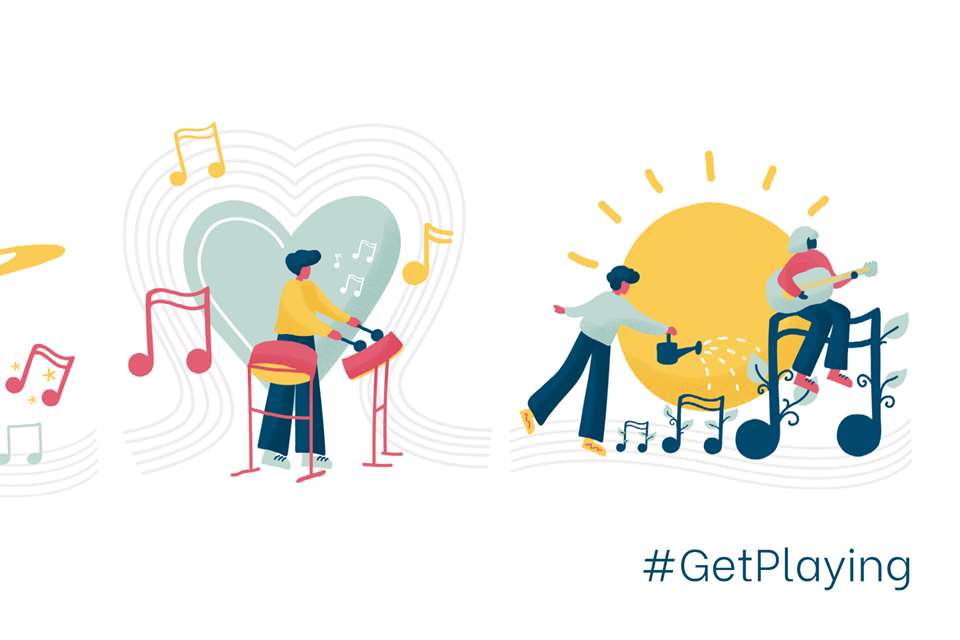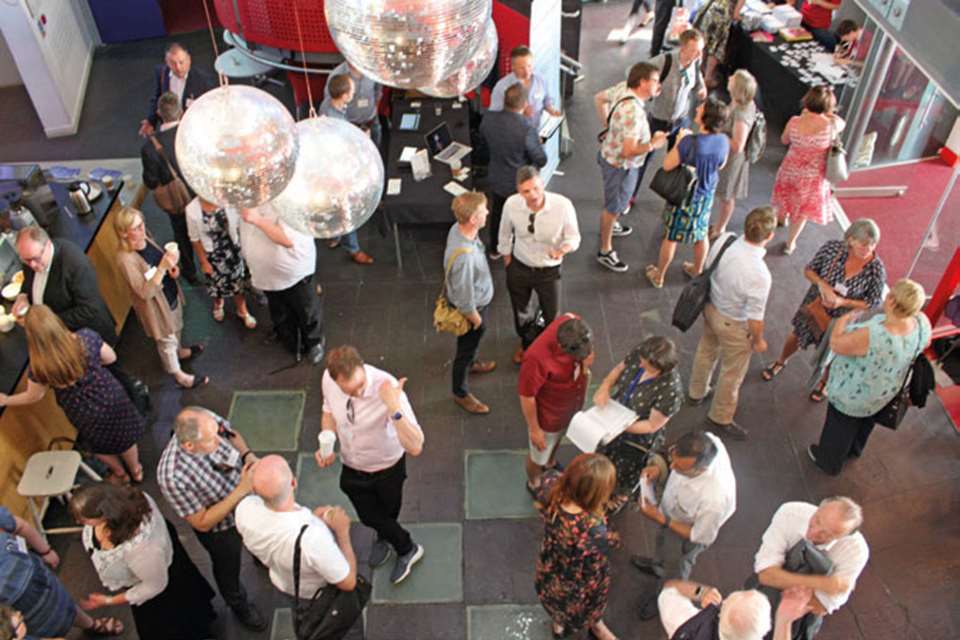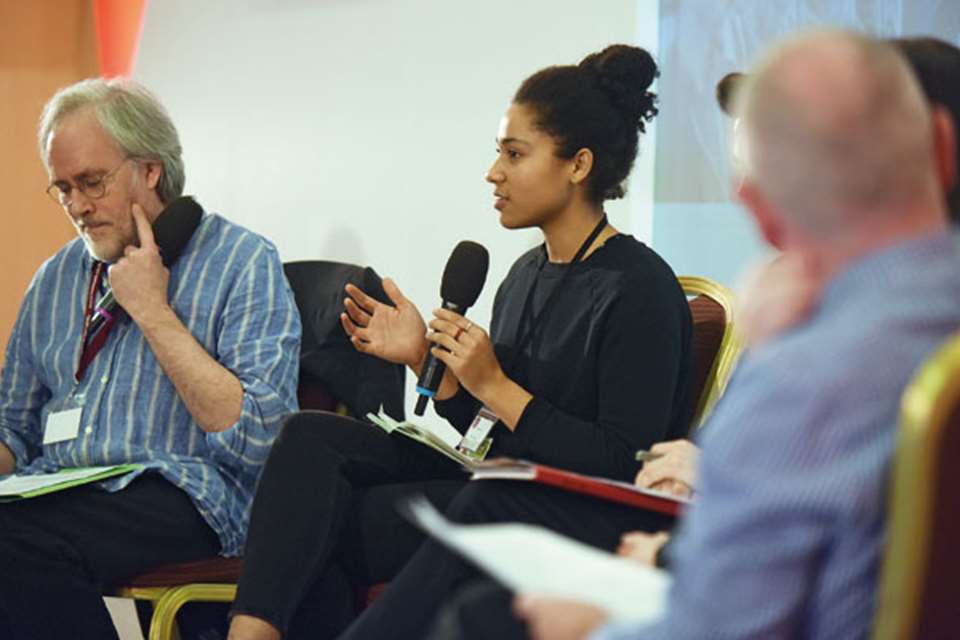Conference report: Music Mark Annual Conference 2021
Claire Jackson
Friday, December 10, 2021
Claire Jackson reports on this year's hybrid conference, 'Fast Forward: Technology and Music Education'.
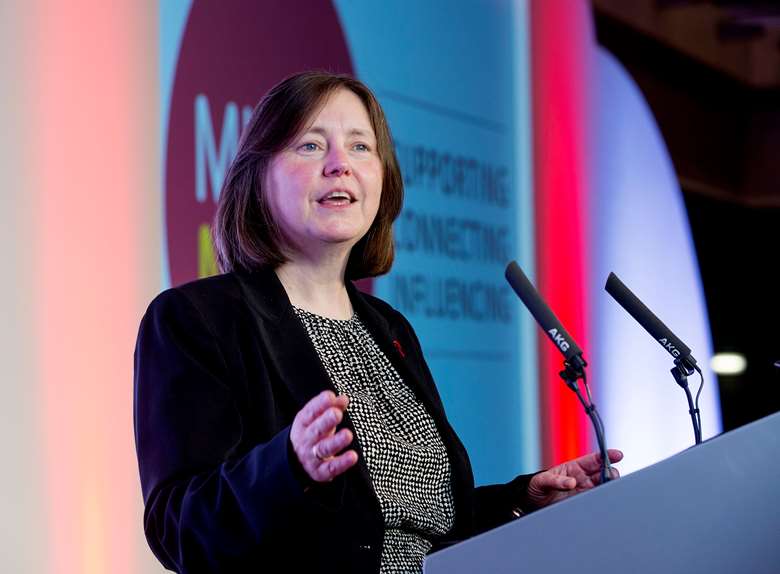
Dave McHugh
'Can we try muting Harry's computer while he's frozen?' asks Tom Lawrence gently, as he and Yshani Perinpanayagam guide their young charges through the compositional process for Grow Wild, an online project commissioned by Awards for Young Musicians and involving six music education hubs (Bradford, Brighton, Hull, Leicestershire, Manchester and Wiltshire).
By this point, Lawrence and Perinpanayagam are au fait with working via Zoom, but that doesn't mean the limitations of the format aren't frustrating. Instead of worrying about tonal quality, the duo encouraged students to embrace the distortions as part of the creative process. As a student strums, the subtitle reads 'atonal guitar music'.
'We all got a lot of pleasure in making chaotic sound,' smiles Perinpanayagam. Although it was disappointing when the live performance – due to take place at Music for Youth’s National Festival in Birmingham in July – was cancelled, it is clear that the 36 participants had a wonderful educational experience.
Technology as a tool
This case study is one of several shared at Music Mark (MM)'s latest conference, which explored how technology impacts music education – as a tool for learning, teaching, administration and making music. As MM's CEO Bridget Whyte highlighted in her opening address, the topic for the 2021 conference is a subject that now affects educators more than ever before.
This year's instalment was a 'hybrid' event, with delegates attending in person at the Brighton Hilton Metropole (2-3 December) and online (until 10 January via conference.musicmark.org.uk). Among the many organisations who shared their expertise were Dorset Music Hub, Youth Music, Leicestershire Music, Croydon Music and Arts, Hackney Music Service, National Youth Jazz Collective and Inspiring Music for Central Bedfordshire.
The climate emergency
MM's 2021 'Hot Topic Debate' was 'Music Education and the Climate Emergency'. Whyte led discussions on this crucial matter, with a focus on how, as music educators, we might support children and young people. Interaction took place in break-out rooms online and at tables in Brighton. Delegates contributed feedback via Mentimeter, useful software that builds interactive presentations in real time (appropriate to see this in action at a conference with technology as its theme).
Some of the ideas included ways to inspire discussion with students, such as through orchestras made out of recycled instruments and composition work linked to climate change. Another suggestion was that the environment is better represented in new commissions (such as the pieces Russell Hepplewhite contributed to the Friday Afternoons project) and that collaborations with relevant charities could enhance students' understanding. It was pointed out that a technology conference could not ignore the impact that increased consumption of devices, cloud storage and other aspects associated with hardware and software has on global warming.
EDI
The ongoing importance of equality, diversity and inclusion was a key feature in multiple sessions, such as Graeme Smith (Croydon Music and Arts) and James Thomas (Hackney Music Service)'s 'Promoting race equality through music and storytelling' and Jim Pinchen (Surrey Arts) and Kayte Cable (Big Leaf Foundation)'s overview of how technology has been supporting musical collaboration between asylum-seeking children and counterparts in host communities.
The way that technology has changed our ability to communicate was exemplified by a session led by Alan Cameron (Soundtrap), Dr Emily Wilson (University of Melbourne) and Pauline Black (University of Aberdeen), who logged in from various geographical points.
Networking from home
Before the pandemic, virtual conferences were rarities in the music education sector. Now, not only do we have the capabilities to attend and host seminars from our homes, we can also visit trade shows without any risky hand-shaking or overloading on instant coffee. Smartly designed software allowed delegates to scroll across a carousel of desks with high stools and book appointments to chat to exhibitors.
Finally, if you're in any doubt about the role of technology within music education, consider this incredible performance (below) of Walking in the Air by students at Chadsgrove School, created in partnership with Open Orchestras.
Music Mark has shared a song written in response to COP26 available for use with students here.


